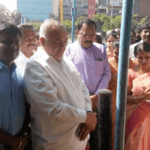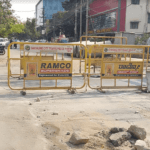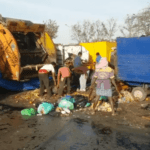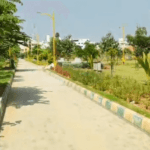The amphitheatre work is about to be completed in a week at the Swabhimaana Tree Park in Sector 3. The sprawling lung space in HSR Layout on 19th Cross, 15th B Main will play host to Deputy Chief Minister G Parameshwar when the open air stadium work is completed.

According to BDA officials, the park work is going along swimmingly and will be completed in a week or two. It is HSR resident and Bellary MP, VS Ugrappa’s idea to call Parameshwar who is also the city development minister. Sources tell us that even chief minister Kuramaraswamy might also make it for the inauguration of the amphitheatre. “All the tiling, painting and drainage work will be complete by then,” said one BDA official. “All the debris lying around the park will be cleared for the inauguration.”
UPDATE
The Belgaum legislature session prevented the inauguration from happening in December. As of March 2019, it was yet to be inaugurated, but the amphitheatre is already being used by the general public in storytelling, dance and other sessions for the kids. Just remember that the use of loudspeakers is restricted as the residents around the area are inconvenienced by the high decibels.




